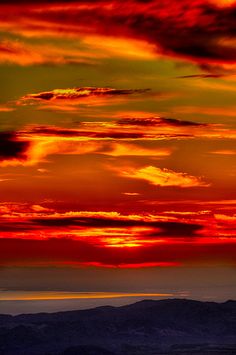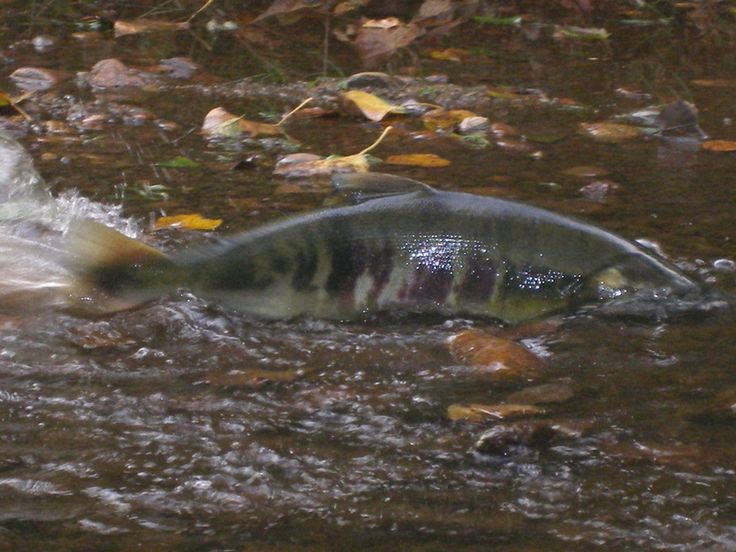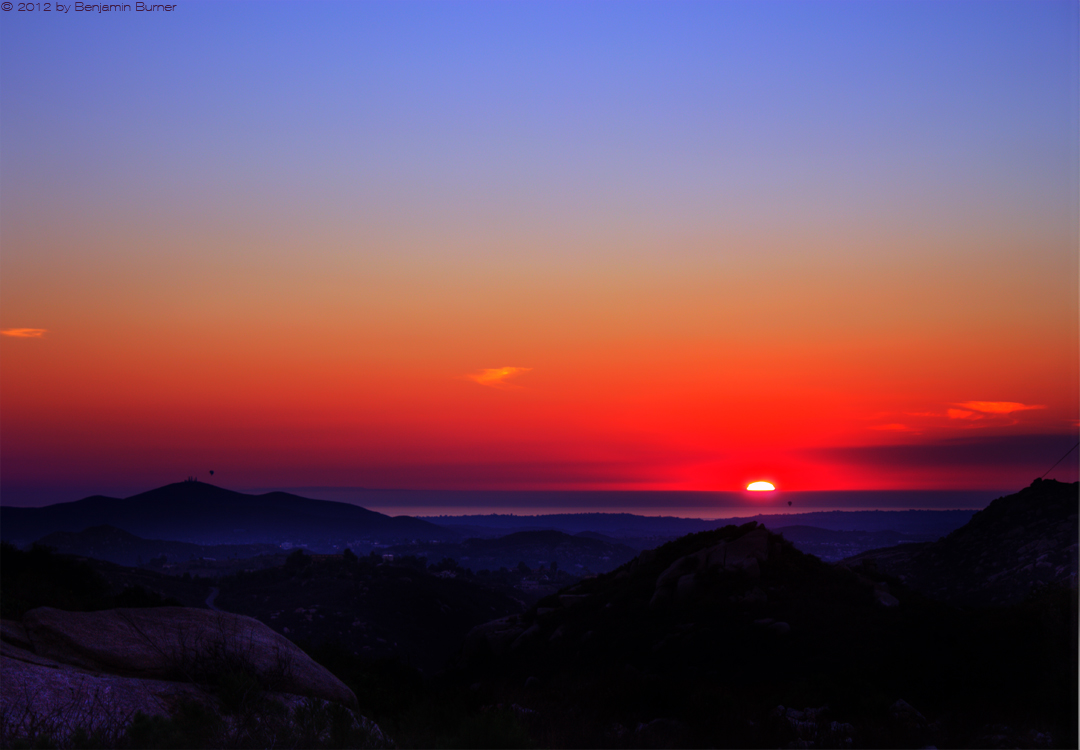Drawn west at sunset as I left the house, I was literally stopped in my tracks at the end of the street. There was a rim of fire along the ridgeline of the Coastal Mountains.
 A line of crenulated light, far more intense than any forest fire, covered the ridgeline of the modest range. Above the mountains, a thin line of clouds was afire in a throbbing magenta. The total effect of setting sun, clouds and atmosphere was like nothing I’ve ever seen.
A line of crenulated light, far more intense than any forest fire, covered the ridgeline of the modest range. Above the mountains, a thin line of clouds was afire in a throbbing magenta. The total effect of setting sun, clouds and atmosphere was like nothing I’ve ever seen.
Across the busy street and to my right, two cars had stopped. Their drivers stood beside their vehicles on the sidewalk, giving every appearance of awe. Other vehicles actually honked in appreciation of the splendor as they went by, though no others stopped.
I crossed the street and stood next to an open field adjacent to a Walmart with people bustling in and out a quarter mile away. A young woman was on one knee in front of her car, as if praying. But in the next second I saw she was merely giving alms to her dumb phone.
A half-minute later, with the concentrated color of our star still rimming the range, both drivers were back in their cars, sending their pictures to the web in which they were caught.
It was not beauty and wonder that had stopped them, but the desire to take a pretty picture and
send it out to virtual friends on facecrook. They may as have well have watched the splendor on TV.
It is no wonder America has a reality TV president when even such grandeur only becomes real when people capture it on their cell phones.
In less than the eight minutes it takes the light from the sun to reach the earth, that rim of fire, never to be seen again, was over.
As they look at a star a million light years away through their telescopes, astronomers often say, “we’re seeing the star as it was million ago, because that’s how long it has taken the light to reach us.” What exactly does that imply about the past and the present?
A meditation some years ago during the winter along the stream that runs through town comes to mind. The rains had been copious that year, and the creek was a small, raging river, full of small waves.
I had plastic, pads, and layers on to ward off the chill as I sat on the ground near the water. Dusk deepened, and that sense of mystery dusk brings deepened as well. The mind quieted completely, and an intensely meditative state ensued, in which there was communion with nature and with humanity.
In that state of stillness, reverence and love the native peoples that lived here before Americans or the Spanish came to mind. How did they live? What was it like for them during the wet and chilly months of winter in northern California?
I’d had the idea that their life must have been spare and often uncomfortable, but realized that I didn’t know anything about how they actually lived, though I had studied anthropology in college and read books like, “Ishi in Two Worlds.” (Ishi, the last of the Yahi people, wandered into a town near here in 1911 after his people had been exterminated. He was labeled “the last wild Indian.”)
Suddenly, a huge salmon swam upstream against the current, slicing through the undulating stream with such power that it looked like it was swimming with the current.
For a few seconds, it ripped open the curtain of time, and I found myself looking into a camp of local native people. I’m sure it was not imagination, or some kind of projection, because I was shocked by the degree of physical wellbeing, comfort, and community.
Later someone told me that so many salmon used to run upstream to spawn in the creeks here that it was said you could walk across their backs in crossing. But no one had seen a salmon in the stream through town for many years. It was a tremendous gift, a window into another time and people that remains in my heart.
Astronomy has demonstrated that everything that has ever occurred in the universe is contained in the present. If we can see a million years into the cosmic past, why is it impossible to gain a glimpse into life 400 years ago on earth?
Time travel is not going back through time, but experiencing the enfolded past through the portal of the infinite present.
Martin LeFevre

